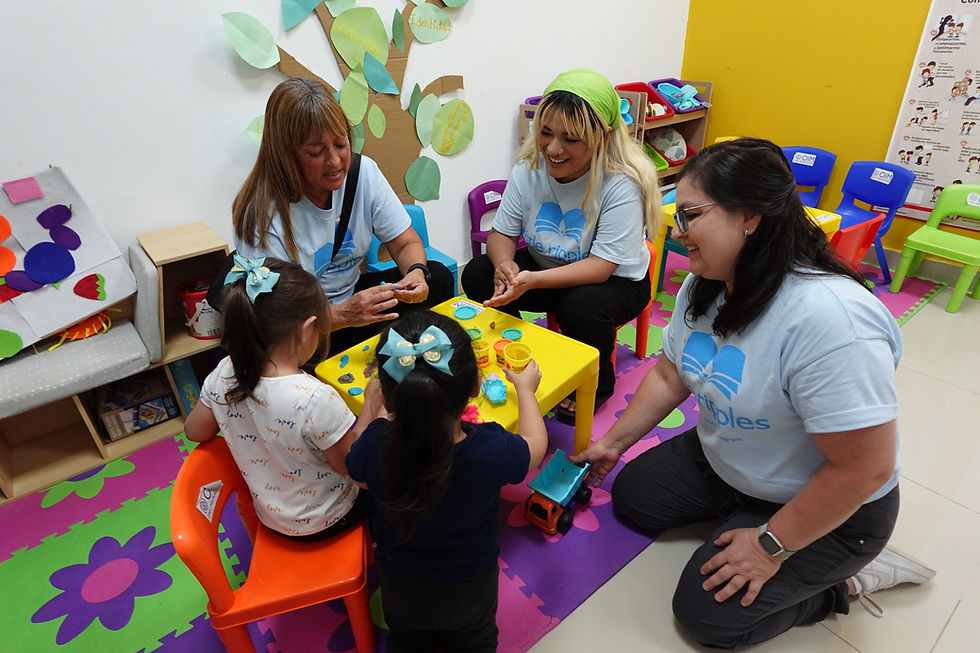Promising Practices in Refugee Education: Learning and Well-being
- iACT
- Dec 15, 2017
- 2 min read
Updated: Feb 19, 2024
Imagine being forced to flee your home—leaving behind your school, stability, and community; and losing family and friends—to start again in a new region of your country or the world. Now imagine this at the age of four.
Your family and community structures have been disrupted, you and the adult caregivers you rely on are experiencing psychological trauma, and now you live in a camp with acute shortages of resources and lack of educational opportunities.
This disruption deeply affects the physical and psychological well-being of all refugees, but especially of young children under five whose brains and bodies are at their most critical stage of development. The impact of exposure to traumatic events can produce high levels of stress for a child, even delaying or damaging brain development, which in turn can lead to lifelong problems in learning, behavior, and physical and mental health. That’s why, for any child—and especially for a child affected by the harrowing experience of becoming and being a refugee—the provision of pre-primary-school services must go beyond merely ensuring he or she is accessing a safe space or learning the ABCs and 123s to comprehensively addressing the “whole-child well-being” by focusing more on his well-being and foundation for lifelong success.
The Little Ripples curriculum and teacher training prepares teachers to do just that. At Little Ripples, teachers teach literacy and numeracy through play, involve children in activities that foster social-emotional development and model nonviolent communication, and use positive behavior management and mindfulness to create an environment in which children can recover, experience and practice empathy, and thrive. Furthermore, the Little Ripples curriculum is adapted to the unique needs of each community, knowing not every refugee experience and culture is the same and that the tools needed for learning and well-being may differ. During teacher training, and throughout the school year, iACT works with Little Ripples teachers and families to ensure its curriculum addresses the needs, behaviors, strengths, and challenges they observe of young children in their home, classroom, and community.
Recently, our early childhood education program, Little Ripples, was selected by Promising Practices in Refugee Education as one of twenty innovative, efficient, and quality education programs for refugee children globally. Launched in March 2017, the Promising Practices in Refugee Education initiative set out to identify, document, and promote innovative ways to efficiently reach refugee children and young people with quality education opportunities. This blog is part of a series of blogs that shares how Little Ripples is addressing some of the key recommendations summarized by the Promising Practices in Refugee Education Synthesis Report.


